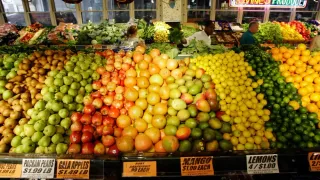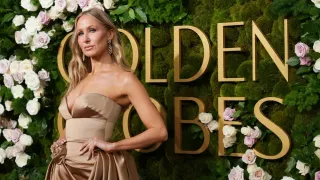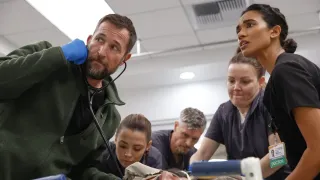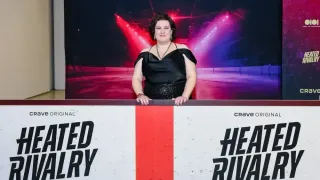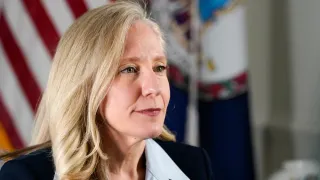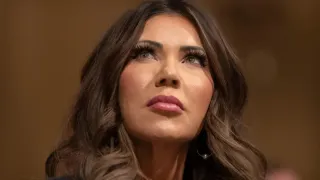September 4, 2024
'I'm a Disrupter,' Says Hannah Gadsby as They Set Out to Tour 'Woof'
Nicholas Dussault READ TIME: 8 MIN.
EDGE: What was it like to receive the autism diagnosis?
Hannah Gadsby: The diagnosis was great. It helped me make sense of stuff. With the ADD [diagnosis], because that one came first, it was about 10 years ago when neurodiversity was still a foreign concept; it was like, "Oh my brain is different. I wish I had understood this earlier." I was quite angry with that one. But once I got the diagnosis that I was on the spectrum I was like, "Okay, this works." Once you understand your brain works in a different way, you adapt. Just having language around it is really helpful. I think what we're just working out is that the brain is on a spectrum. All of the science is still new, and the stories are still evolving. I am a tiny example of it.
I always knew I was different, and I always thought if I kept trying I could change it. But with the diagnosis, it just saves me a lot of time. I am aware of what I can and cannot do. When I'm struggling now, I have a lot of empathy and a lot of strategies I can try. A lot of it is my ability to connect to community landscapes and groups and things.
The peculiarities of this world we're building for ourselves online is changing people's brains, also. If I did not have my diagnosis, my ability to communicate on social media would have been a lot more devastating. I have a presence because it's a necessary situation, it's how we do it now. I have safeguards to engage, because it's not a very safe place for me. It's not something I derive a lot of pleasure out of. I think it's sort of a toxic place out there, but I don't think the internet invented hopelessness.
EDGE: Do people look to you as some sort of role model?
Hannah Gadsby: Where I am on the spectrum and my experience with trauma, etc., it's very difficult for me to take in the positive. I am at the Edinburgh [Festival] Fringe at the moment, and I have helped people. It's enough for me. It's a really dangerous game to play. "Nanette" was huge, and, if I looked at that directly, I was quite old [40] when it happened. I knew enough that that kind of intensity was not going to last forever unless you buy into it, and that distorts who you are and what you do. You become part of a machine. I don't belong in a machine. I'm a disrupter.
My mind was blown by how many people "Nanette" speaks to. It was too personal, and too angry, and specific to me. I said things that hadn't been said before. So many people felt a similar frustration as me. That was really nice to me. You're not alone. You're not alone eating lunch on the toilet.
EDGE: Did you really eat lunch on the toilet?
Hannah Gadsby: The lid was down, my pants were up.
EDGE: Did you ever give Jodie Foster a proper thank you for the Bananagrams?
Hannah Gadsby: I emailed her, and then she invited me to dinner next time, but I forgot to follow up. I think I'm going to LA later, and I'm going to do it. She's Jodie Foster. She's a legend for a reason.
EDGE: What can we expect to see in "Woof!"?
Hannah Gadsby: I'm just grappling with a changed landscape, on the macro and the micro. I'm very anxious, but who isn't? My world has changed, but whose hasn't?
For more on Hannah Gadsby, visit their website.
Hannah Gadsby "Woof" tours the US from September 10 through November 24. For full details, click here.
Gadsby brings "Woof" to Boston's Emerson Colonial Theatre for two shows, 7 pm & 10 pm, on September 19. For ticket information, click here.
